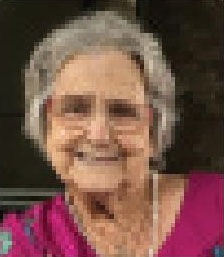
How to Turn Your Side Hustle Into A Business
August 16, 2018
Una Vanacor
August 16, 2018A year has passed since the late Judge James Brady determined after an eight-day trial that Louisiana’s use of at large voting for state district court judges in the 32nd Judicial District which encompasses all of Terrebonne Parish.
The lawsuit was filed in 2011 on behalf of the Terrebonne Pariah NAACP and some of its members Much has occurred since then.
Terrebonne Parish, at the request of Parish President Gordon Dow. aided by parish attorney Julius Hebert sought to become a defendant in the case, which was brought against the Governor of the state and its Attorney General. The request was mercifully denied by the Judge Brady, Sparing the people of Terrebonne Pariah an untold sum of money in legal fees, as well as a potentially back-breaking judgment of costs should the plaintiffs eventually prevail. That threat is now gone.
What we don’t know yet is how much a financially strapped State of Louisiana is paying — or will have to pay – for the partisan out-of-town team litigating the case.
Jason. Torchinsky, a more than capable talent whose legal guns are well-reputed to have been need in favor of Republican-backed causes nationwide, represents the defendant Attorney General Jeff Landry. One of his arguments against creation of a separate minority district far judicial selection, considered a viable remedy in similar cases, is that it constitutes a “‘racial gerrymander.”
By design, it certainly is. But as the court records indicate in cites of case-law. creating districts along racial lines has been one of the only ways to address long-standing issues of vote dilution. Vote dilution and a resulting violation of the U.S. Voting Rights Act by the state were determined as fact by Judge Brady. While the defendants are chomping at the bit to appear before the U.S. 5th Circuit Court of Appeals or ultimately the U.S. Supreme Court the legal hills mount So far; requests to Landry’s office for dollar amounts being paid Torchlnsky, MB Virginia firm and their associates have resulted in a zero response.
Local objections to a map suggested by the NAACP’S attorneys included concern over the use of split precincts to create a minority sub-district But there is an alternative plan submitted by those same lawyers which the court may consider, which eliminates split precincts. The state itself, although invited to present its own plan to the court, never did so. The Louisiana legislature this year passed on an opportunity to end the litigation, with the local delegation primarily at fault Not a single local legislator had the courage to support a bill none of them dared would draw up themselves, providing for an end to Terrebonne judicial elections that vitiate federal law.
The jurist who now handles this case, U.S. District Judge Shelly Dick, is aware of the legislature’s refusal to ad She appears to have ignored — and rightfully so — attempts by the Attorney General and his lawyers to re-try the facts in the case.
Judge Dick now asks for suggestion for a Special Master to help her create a remedy for the violation of law Judge Brady found To the credit of Attorney General Landry, he has made two suggestions and, although carping in the legal papers about the appointment of a Special Master, has agreed to the move Be does, however; seek intuits time beyond a January date set by the judge far arguments.
At this paint it would appear that except under the mist unusual of circumstance an appeals court is not likely to overturn Judge Brady’s verdict, although they could — perhaps – find fault with the eventual remedy.
We are saddened that the Attorney General would gamble with the state’s tax dollars on expensive legal fees., dragging out litigation that should not be needed, to solve a problem complained about for more than a decade The legislature should have acted, and the Attorney General could have advised them to do so.
Each stop Louisiana takes to thwart enforcement of the Voting Rights Act finding costs more dollars. More importantly it fosters the impression that Louisiana least needs to have prevail, by being an the wrong side of history in civil rights and voting rights matters, All sides in this matter should stop the clock if possible and agree to find common ground now.
Judge Dick now asks for suggestions for a Special Master to help her create a remedy for the violation of law Judge Brady found.”






